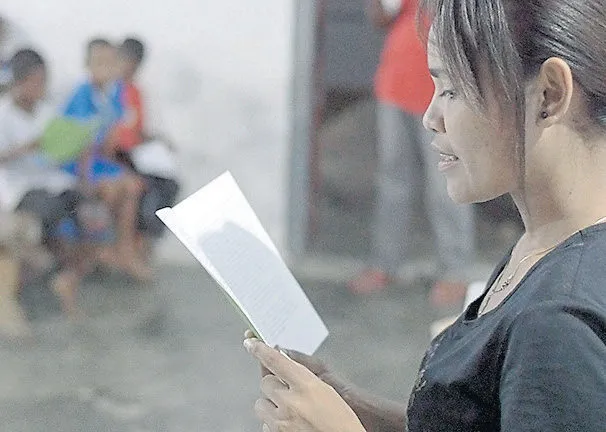‘I want to tell you why I was crying last night. I had just heard them praying and reading in our language.’
Until recently, Yoke had only heard speakers of her language pray or read Scripture in the national language, Indonesian. Yoke lives in the Aru Islands in Eastern Indonesia, where her language, Dobel, is spoken along with 16 other local languages in addition to the trade language, Aru Malay. While many Dobel speakers also speak Indonesian, it’s not their language.
From formal to personal
A lack of access to the Bible in their own language has not been without its consequences. Only having access to the Bible in the national language has given rise to an expectation that faith should be practised in Indonesian, on a par with official matters and schooling. The idea of praying, worshipping and reading the Bible in Dobel, the language of the home and close relationships, is new to many people. Practising faith in another language affects not only Dobel speakers’ basic understanding of the Scriptures (as Indonesian is not understood as well as their own language), but it also affects their relationship with God and their understanding of who he is. If the Scriptures don’t exist in their language, does God even want a relationship with them? Isn’t he just the God of those peoples whose languages he does speak?







